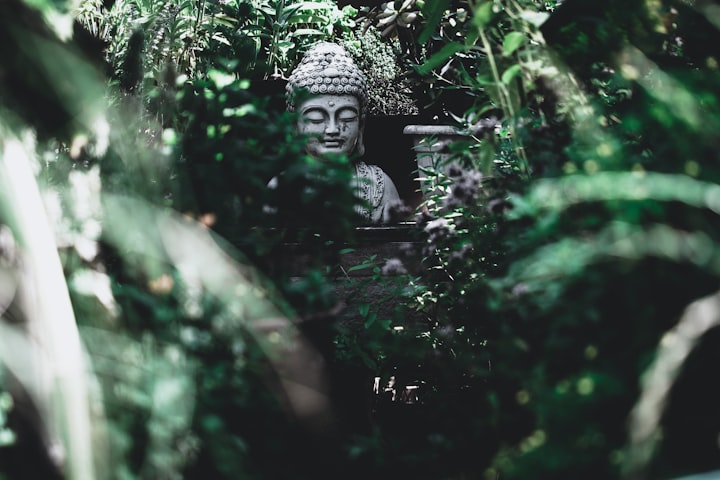Be A Lamp Unto Yourself
A lesson in personal responsibility from the Buddha

I’m not a Buddhist but I do love studying Eastern thought and particularly Buddhism. For me, as a philosophy it seems to have a profound understanding of human psychology. The methods of recognising how our own conscious mind works and harnessing it to manifest more loving and serene mind states to me seems to be of crucial importance at this juncture in human history.
Another thing I love about Buddhism, is that for the most part it seems to avoid the dogmatic rule keeping of many organised religions. There are definitely still elements of that in Buddhism, especially for those that choose the monastic life, but as whole it’s wisdom is seen as proposals on a path to a more enlightened mind, rather than a strict set of rules which if dis-obeyed will land you in an eternal hell realm.
The Buddha on his last days was said to tell his followers ‘Be a lamp unto yourself’. This for me is an incredibly liberating and progressive statement. We all know that in any spiritual tradition or for that matter any political or social one, that it’s very easy for leaders to emerge and that through charm, eloquence and some intelligence, what started as a movement to liberate and save can quickly become tyrannical, abusive and dangerous. I don’t think this is just the fault of the powerful themselves, power corrupts, but also as human beings we seem to desperately long to be saved, led and be provided answers to our problems by an outside source that knows better. Whether it be political dictatorships, the church or family members, we can often look back and wonder how individuals seemed to acquire so much unrestrained power.
This is why ‘Be a lamp unto yourself’ is such an important message for me. I certainly made a realisation in my twenties that one of the hardest but most liberating changes to create a healthy state of mind is taking complete responsibility for our lives. It’s easy to blame our distress on our partners, our family, world events, ‘if only my wife did the washing up’, ‘if only I had been raised in this way’, ‘if only we had a more progressive prime minister’, imaging that if external events were different we could be happy. But the reality is that only we are capable of changing our mind states. That’s not to say that there aren’t people that are deeply damaged by trauma, undeniably that is a huge obstacle to happiness and one that needs to be worked through but equally the solution lies within ourselves not through following an outside source of knowledge.
The Buddha listed ten ways of knowing that don’t lead us to truth: oral history, tradition, scripture, news, ordinary reasoning, dogmatism, common sense, one’s own opinions, expert opinions, opinions of authorities. The statement that we can’t trust our own opinions seems a little counter-intuitive if we are to be a lamp unto ourselves, but I think the message to be drawn is that we need to delve deep into ourselves through meditation and self-reflection to peel back the layers and study whether our thoughts are coming from our fundamental true nature or are creations of our culture, media and social authorities. Much of what we take to be our thoughts and behaviours are really just learned patterns to acquire the approval of those around us. The Buddha also encouraged though with this advice: ‘do not be satisfied with hearsay or tradition, or any teachings, however they may come to you. Only when you know in yourself when things are wholesome, blameless, commended by the wise, and when adopted and practiced lead to welfare and happiness, should you practice them. When they lead to virtue, honesty, loving-kindness, clarity, and freedom, then you must follow these’.
What I take I from this then is that in trusting our own intuition and being courageous in following our own path we must always be mindful of the ego. By constantly checking in and making sure that we are acting in compassionate and loving ways and bringing others up with us rather than being driven by the urge towards destructive forces of domination, judgement and pride.
About the Creator
Josh Chandler Morris
Jeweller and musician trying his hand at poetry and essays.






Comments
There are no comments for this story
Be the first to respond and start the conversation.